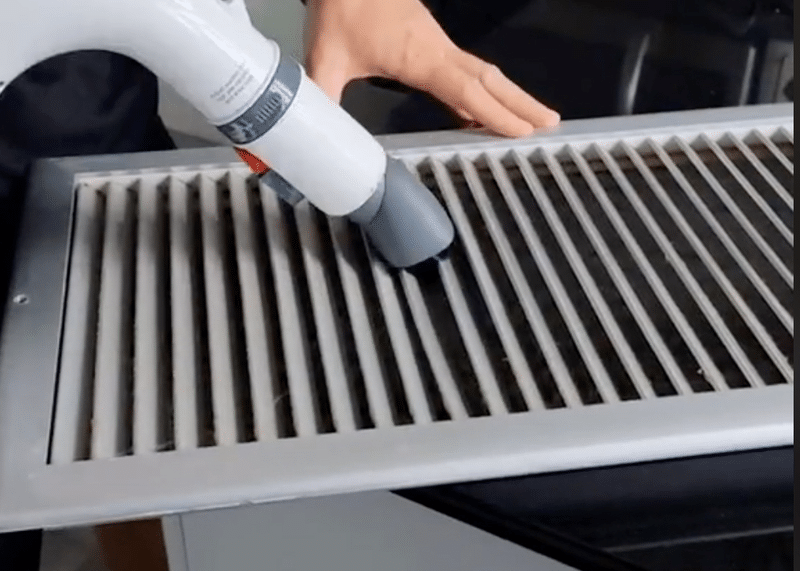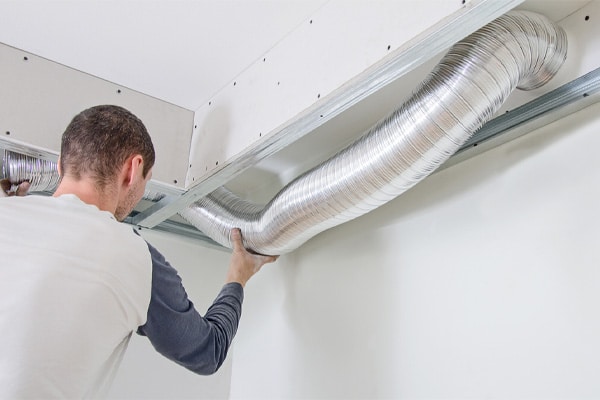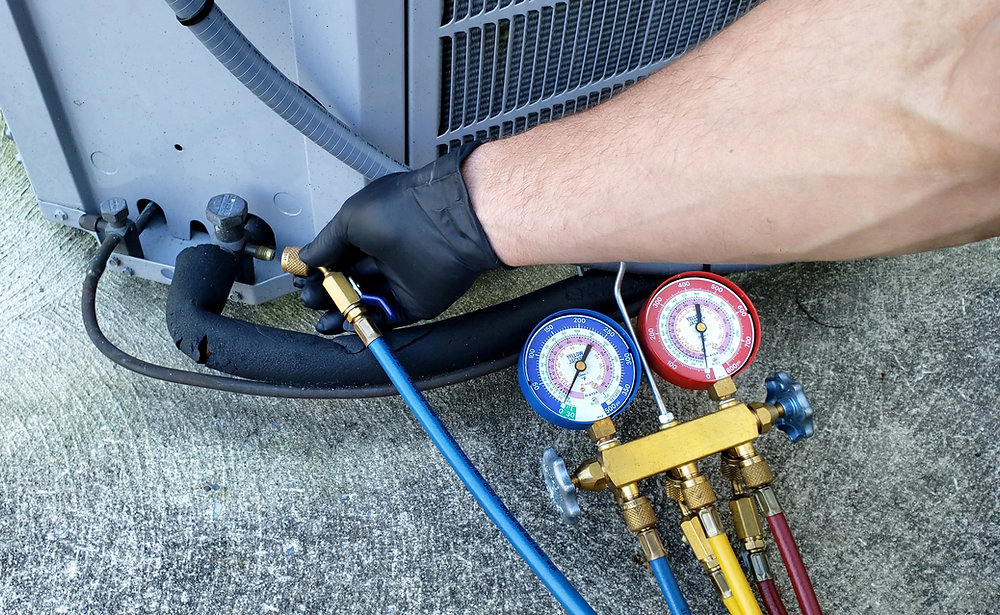The transition from winter’s chill to spring’s warmth makes now the ideal time to give your HVAC system some much-needed maintenance. In addition to guaranteeing peak performance, proper maintenance also keeps your home comfortable overall, energy-efficient, and with good indoor air quality. It only takes a little work and careful attention to detail to make sure your home’s HVAC system is prepared for the upcoming weather changes. Here are some crucial spring cleaning pointers to maintain the optimal condition of your HVAC system:
Replace Air Filters Frequently
Altering the air filters on a regular basis is one of the easiest yet most crucial HVAC maintenance jobs. Dust, grime, and other particles can clog filters over time, limiting airflow and decreasing effectiveness. Depending on how much you use and what kind of filter you have, try to change your filters every one to three months. This not only keeps your HVAC system from overworking itself and helps to improve interior air quality, but it also prolongs its longevity.
Clear the Registers and Vents

Spend some time cleaning and checking the vents and registers in your house. This is where dirt and debris can gather, blocking airflow and lowering HVAC system performance. To ensure that air can circulate freely and to remove any buildup, use a moist cloth or a vacuum with a brush attachment. In addition, for a more comprehensive maintenance schedule, think about taking off and cleaning the vent covers.
Check and Clean the Outdoor Unit
Leaves, branches, and dirt may all build up around your outside air conditioning unit, especially in the spring and summer. Examine the device and remove any surrounding impediments with caution. Reduce the amount of foliage surrounding the unit to guarantee proper airflow and clearing. To get rid of dirt and grime, gently rinse the unit’s exterior with a garden hose, being cautious not to bend any fins or break any components.
Schedule Professional Maintenance
You should arrange professional maintenance for your HVAC system at least once a year, preferably in the spring or fall, even though there are many jobs you can perform yourself. A qualified expert can make sure your system is running as efficiently as possible by doing a comprehensive inspection, cleaning coils and other parts, and looking for any possible problems. Frequent maintenance increases energy savings and prolongs the life of your HVAC system in addition to preventing expensive repairs.
Check for Leaks in the Ductwork

Your HVAC system’s efficiency can be severely impacted by leaky ducts, which can result in air loss and worse overall performance. Look for leaks in your home’s ductwork by inspecting it for loose connections, gaps, or tears. To increase effectiveness and airflow, seal any leaks with foil tape or duct mastic. If you need a more complete inspection and cleaning of your ducting, think about contacting a professional duct cleaning service.
Invest in a Programmable Thermostat Instead
If your thermostat isn’t programmed already, think about upgrading to one. With the help of programmable thermostats, you can optimize energy use and reduce utility costs by creating personalized heating and cooling plans depending on your daily activities. Utilize functions like the ability to set back settings for when you’re sleeping or away from home to maximize comfort and productivity all day long.
Think About Cleaning Air Ducts
The quality of the air inside your home can be adversely affected by the accumulation of dust, allergies, and pollutants in your ductwork over time. To get rid of accumulation and enhance air flow throughout your house, think about making an appointment for professional air duct cleaning. Cleaner ducts translate into cleaner air for you and your family, which can be especially helpful for people with allergies or respiratory conditions.
Inspect and Clean Condensate Drain Line
Your HVAC system’s condensate drain line is in charge of eliminating moisture. Algae, mold, and debris can plug this line over time, potentially causing water damage and decreasing its effectiveness. To stop mold from growing, check the drain line for obstructions and clean it with a bleach and water solution. In addition, to guard against water damage in the event of a clog, think about installing a condensate drain pan overflow switch.
Verify the Refrigerant Levels

Your HVAC system must operate efficiently at proper refrigerant levels. Low refrigerant levels may be a sign of a leak or other problems that require attention from a qualified specialist. To make sure your system is performing at its best, include a refrigerant level check in your yearly maintenance schedule.
Examine and Grease Any Moving Parts
Your HVAC system’s lifespan can be increased and friction can be decreased by regularly lubricating moving elements like fan motors and bearings. Check for wear and tear on these parts and lubricate as necessary. This easy maintenance procedure can keep your system operating properly and help avoid future, expensive issues.
Conclusion
You can make sure your home HVAC system is dependable, effective, and prepared to keep you comfortable during the changing seasons by adding these HVAC spring cleaning suggestions to your routine maintenance. Recall that routine maintenance not only increases the longevity of your HVAC system but also, over time, lowers energy expenses and improves indoor air quality. Thus, take the time to properly maintain your HVAC system and benefit from a more comfortable, healthier home environment all year round. Your HVAC system will continue to give you years of dependable service and peace of mind with the right upkeep.






GIPHY App Key not set. Please check settings